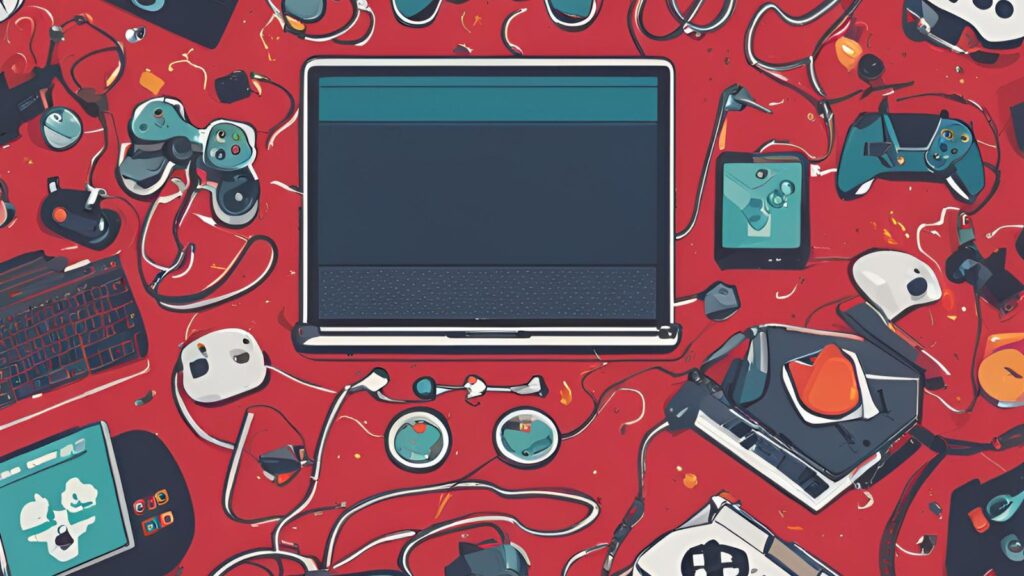Introduction
In recent years, the intersection of gaming and mental health has garnered significant attention from researchers, players, and mental health professionals alike. Video games, once viewed primarily as entertainment, are increasingly recognized for their potential benefits and risks regarding mental well-being. As gaming technology evolves and becomes more integrated into daily life, understanding its impact on mental health has become essential.
The Positive Effects of Gaming on Mental Health
Video games can provide several positive benefits for mental health, acting as a powerful tool for stress relief and emotional regulation. For many players, gaming serves as an escape from daily pressures, allowing them to immerse themselves in different worlds and narratives. This escapism can offer a much-needed break from reality, helping to alleviate feelings of anxiety and depression.
Furthermore, multiplayer and cooperative games foster social connections, enabling players to build friendships and support networks. Engaging with others in a shared gaming experience can combat feelings of isolation and loneliness, particularly for those who may struggle to connect in face-to-face interactions. Many players report feeling a sense of belonging within gaming communities, which can significantly contribute to improved mental health.
In addition to social benefits, certain game genres, such as puzzle or strategy games, can enhance cognitive skills and provide a sense of accomplishment. Completing challenges and achieving in-game goals can boost self-esteem and confidence, reinforcing a positive mindset. This sense of achievement is vital, especially for individuals who may find it challenging to experience success in other areas of their lives.
The Risks of Gaming on Mental Health
While gaming can offer numerous benefits, it is essential to acknowledge the potential risks associated with excessive gameplay. One of the most significant concerns is the possibility of addiction. Some individuals may find themselves spending excessive hours gaming, leading to neglect of responsibilities, relationships, and physical health. This compulsive behavior can result in feelings of guilt, anxiety, and even depression, especially when gaming interferes with daily life.
Moreover, exposure to violent content in certain games can desensitize players to real-world violence and increase aggressive thoughts or behaviors. While not all gamers will experience these effects, it’s crucial for parents and players to be mindful of the types of games being played and their potential impact on mental well-being.
Social isolation is another risk, particularly for those who primarily engage in solitary gaming. While online interactions can foster connections, they may not replace the benefits of in-person socialization. Individuals who retreat into gaming as a primary form of social engagement may miss out on essential face-to-face interactions, leading to feelings of loneliness and disconnection over time.
Finding Balance in Gaming
To fully enjoy the benefits of gaming while minimizing its risks, finding a healthy balance is crucial. Setting boundaries around gaming time can help players maintain a well-rounded lifestyle. For example, allocating specific hours for gaming each week ensures that it remains a source of enjoyment rather than a source of stress or obligation.
Incorporating breaks during gaming sessions can also contribute to healthier habits. Taking time to stretch, hydrate, and engage in other activities can prevent the negative effects of prolonged screen time and help maintain physical health. This balance allows players to recharge both mentally and physically, enhancing their overall gaming experience.
Engaging in a variety of activities outside of gaming is equally important. Pursuing hobbies, spending time with family and friends, and participating in physical activities can create a more fulfilling life that is not solely centered around gaming. These activities can provide additional sources of joy and accomplishment, contributing positively to mental health.
Additionally, being mindful of the content of the games played can make a significant difference. Choosing games that promote positive themes and social interactions can enhance the mental health benefits while reducing exposure to negative influences.
Resources for Mental Health Support in Gaming
As the connection between gaming and mental health becomes increasingly recognized, various resources are emerging to support players in navigating these complexities. Mental health organizations are beginning to acknowledge the role of gaming in both positive and negative contexts, leading to tailored resources for gamers.
Many gaming companies and platforms are implementing features to promote mental well-being. For instance, some games include in-game prompts encouraging players to take breaks or provide access to mental health resources. Additionally, community forums and support groups focused on gaming offer safe spaces for individuals to share their experiences and seek advice.
For those struggling with gaming addiction or related mental health issues, seeking professional help is essential. Therapists and counselors specializing in gaming addiction can provide tailored strategies and support to help individuals find a healthier relationship with gaming. Online therapy platforms often cater to gamers, offering flexible options for those who may find it challenging to seek in-person support.
Moreover, websites like Duwiki provide a wealth of information on various topics, including mental health and gaming. This platform offers tutorials, guides, and troubleshooting tips that can help players make informed decisions about their gaming habits and mental well-being.
Conclusion
The relationship between gaming and mental health is multifaceted, with both positive and negative implications. While video games can serve as a powerful tool for stress relief, social connection, and cognitive enhancement, it is essential to remain aware of the potential risks associated with excessive gameplay. Finding a balance between gaming and other aspects of life is crucial for maintaining mental well-being.
As the gaming industry continues to evolve, the importance of mental health in this context will only grow. By leveraging available resources, fostering positive gaming habits, and promoting open discussions about mental health, players can enjoy the benefits of gaming while minimizing its risks. Ultimately, with the right approach, gaming can be a valuable ally in supporting mental health and well-being.

